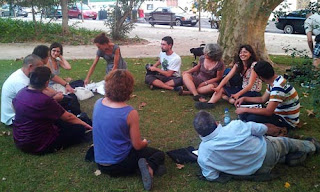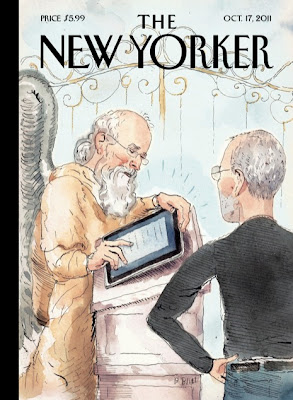Muito se escreveu nas últimas 48h sobre Steve Jobs. Destaco, para já, dois textos.
“He was the most passionate leader one could hope for, a motivating force without parallel,” wrote Steven Levy, author of the 1994 book “Insanely Great,” which chronicles the creation of the Mac. “Tom Sawyer could have picked up tricks from Steve Jobs.”“Toy Story,” for example, took four years to make while Pixar struggled, yet Mr. Jobs never let up on his colleagues. “‘You need a lot more than vision — you need a stubbornness, tenacity, belief and patience to stay the course,” said Edwin Catmull, a computer scientist and a co-founder of Pixar. “In Steve’s case, he pushes right to the edge, to try to make the next big step forward.”
«Steve Jobs was a geek: he hacked phones, built computers, and wrote code. But he was also an artist: he studied calligraphy, dated Joan Baez, and actually understood what could make a phone sexy. He was a hippie: who else drops out of Reed? But he was an authoritarian, too. He knew what you wanted better than you did, and he was going to give it to you. These yin-yang couplets explain some of his genius and success. So, of course, does his idealism. (He famously once asked a Pepsi executive whether he wanted to spend his life making sugar water.) And then there was the death sentence he lived under. Being diagnosed with pancreatic cancer in 2004 gave him a new way of looking at things. “Your time is limited, so don’t waste it living someone else’s life".»





